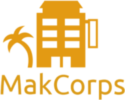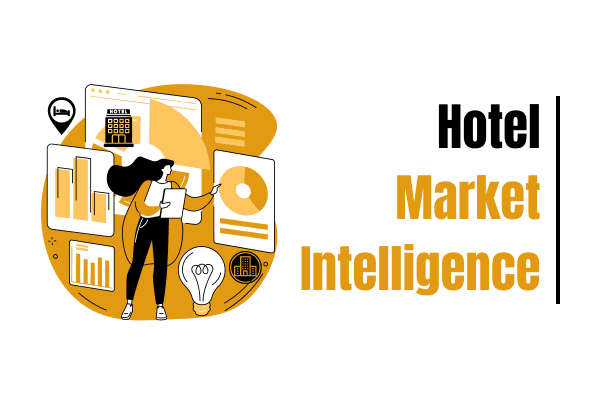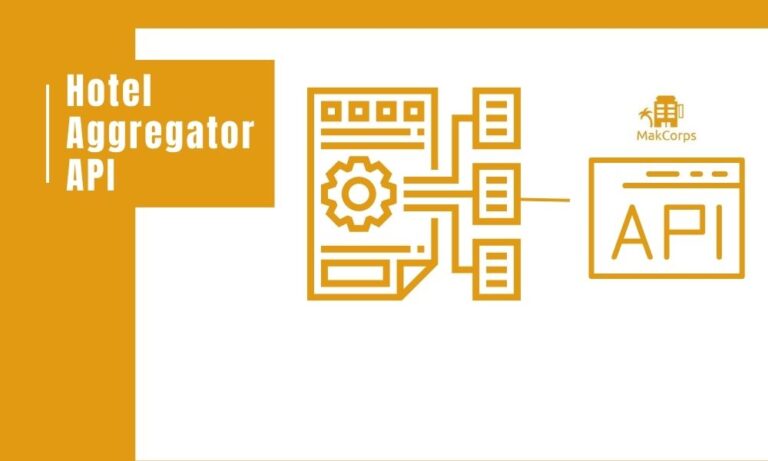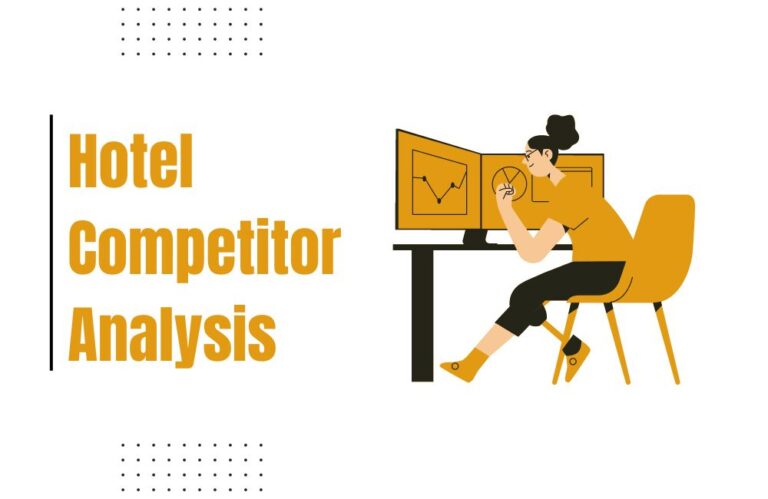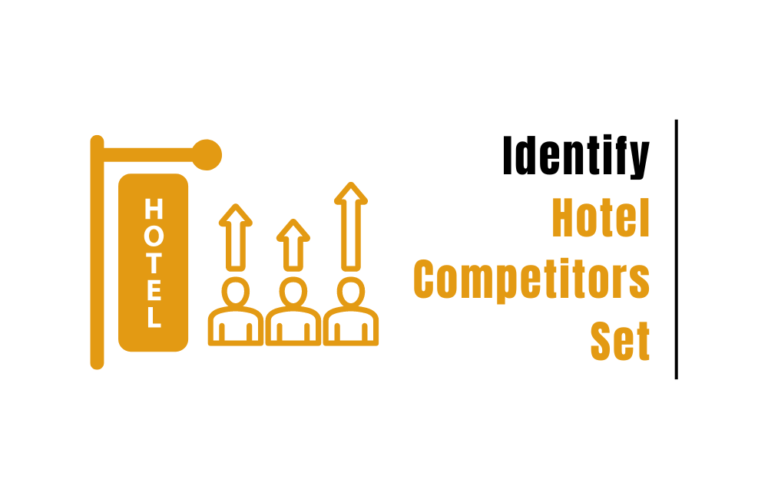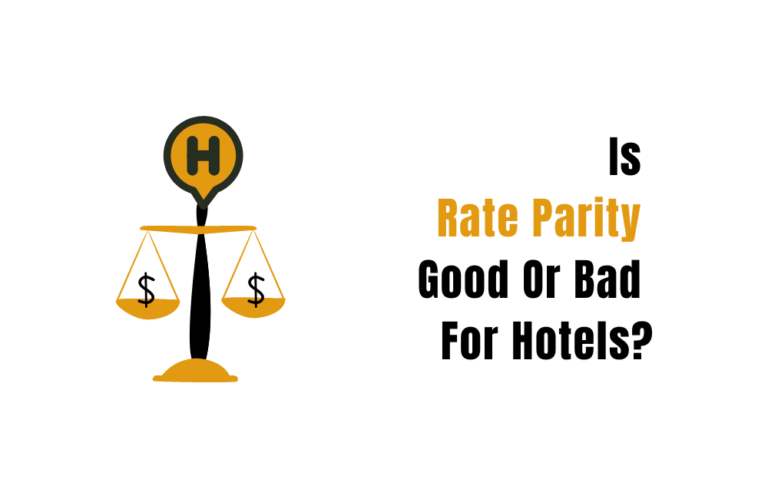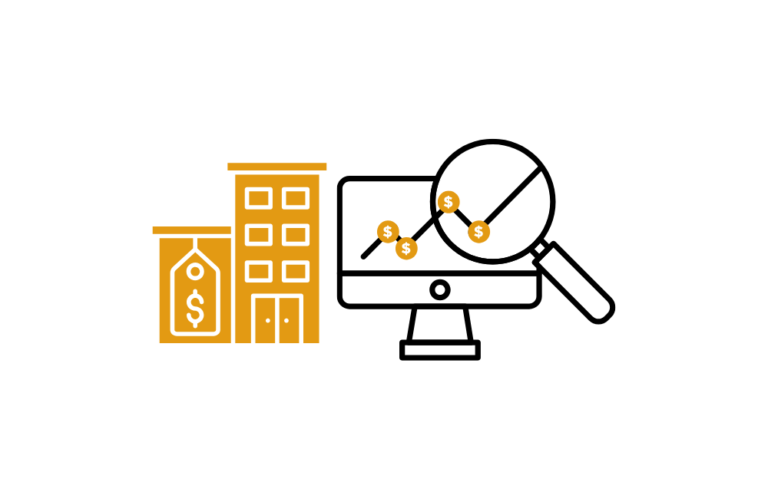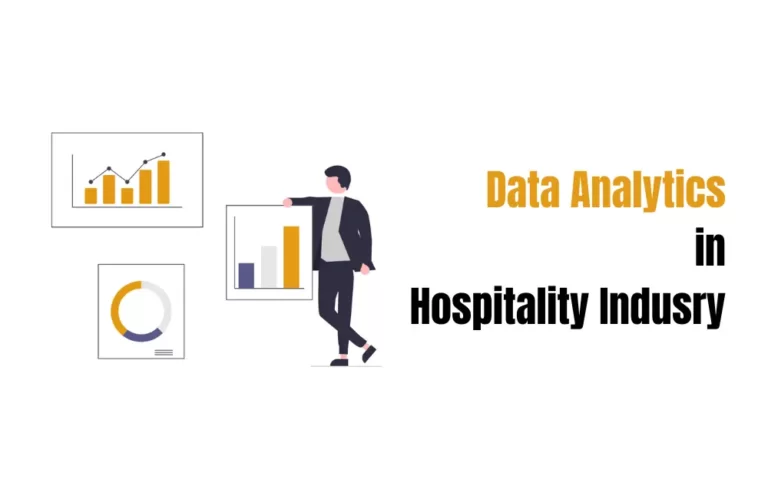How to Leverage Hotel Market Intelligence to Stay Ahead in 2025
In the hotel industry, success is not just about offering great rooms and exceptional service but knowing how to position your property in a constantly shifting market. Room rates can fluctuate 20% depending on factors like seasonality, local events, and competitor pricing. Without the right insights, you risk either overpricing your rooms and driving guests away or undervaluing them and leaving revenue on the table.
Moreover, the number of hotels and motels in the U.S. grew by 4.2% from 2023 to 2024, and it’s set to rise another 4.0% from 2024 to 2025 (Statista).

While that might sound like steady growth, it’s a sign that the market is becoming even more saturated and competitive. Simply having a great property is not enough to sell your rooms, you need to be strategic and make data-driven decisions.
That’s where hotel market intelligence can help you. It’s the key to understanding your competition, setting the right prices, and capturing the attention of today’s travelers.
In this guide, we’ll walk you through:
- What hotel market intelligence is
- Why it’s crucial for your success in 2025
- And how you can use it to maximize bookings and boost your revenue
Let’s get started.
What is Hotel Market Intelligence?
Hotel market intelligence provides the hotel industry with data collection, analysis, and interpretations required for sound decisions. This will involve an understanding of the various factors that include consumer preferences, market trends, pricing strategies, and even activities by the competitors.

Example: Imagine if you manage a mid-range hotel in a city that’s about to host an international conference at a convention center. Without market intelligence, you might set your room rates based on last month’s averages, unaware of the upcoming surge in demand. But with the right data, you can see that competitor hotels across the city have already increased their rates by 25% in anticipation of the event. Additionally, market insights also reveal that business travelers attending the conference prefer flexible check-in times, high-speed Wi-Fi, and shuttle services to the venue. By leveraging this information, you can adjust your pricing accordingly, offer tailored packages, and promote amenities that appeal directly to these travelers—attracting more bookings and maximizing revenue.
In short, market intelligence helps you stay ahead of market shifts, optimize pricing, and align services with guest expectations to ensure your hotel stays competitive in a dynamic market.
Difference Between Market Intelligence and Business Intelligence
| Aspect | Market Intelligence | Business Intelligence |
|---|---|---|
| Focus | External factors like market trends, competitors, and customer behavior. | Internal operations like sales, performance, and processes. |
| Purpose | Understand the external environment to stay competitive. | Optimize internal business processes and decision-making. |
| Data Source | Competitors, customers, market reports, industry trends. | Internal databases, operational reports, financial data. |
| Timeframe | Forward-looking (predicting trends and opportunities). | Historical and real-time (analyzing past performance). |
| Key Use | Strategic decision-making for positioning and growth. | Operational efficiency and improving internal workflows. |
| Example | Comparing competitor pricing and tracking market demand. | Analyzing sales reports to identify top-performing products. |
Why Market Intelligence is Important for Hotels?
The hotel business is a cutthroat market, and anyone who gains an upper hand in the game certainly gets a difference made. To do this, you need to leverage market intelligence, its super important because:-
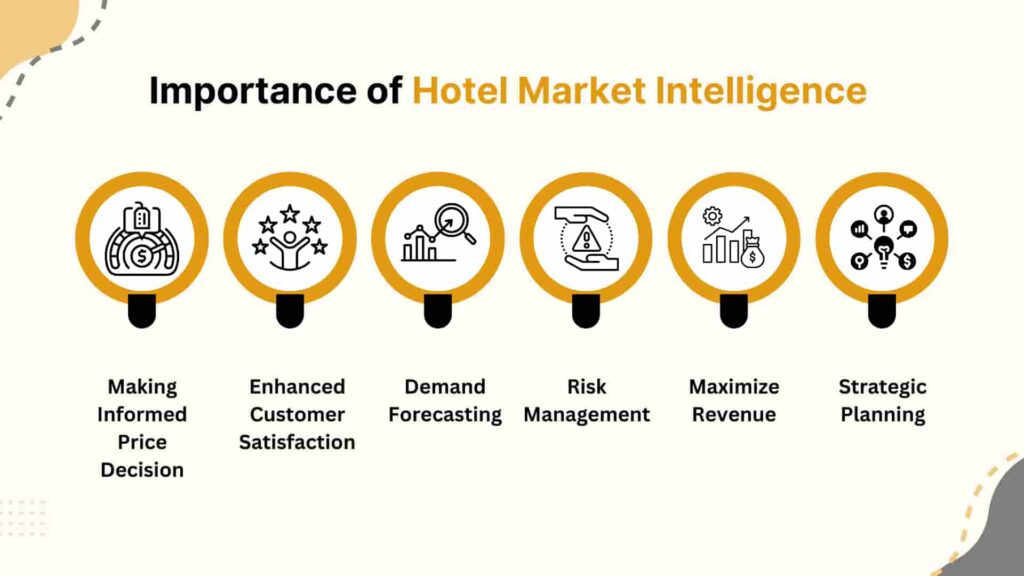
Make Informed Pricing Decision
Market intelligence transforms raw data into a strategic roadmap that helps hotel businesses identify their competitor’s pricing and adjust accordingly.
Understanding competitor pricing is crucial for any hotel business aiming to be profitable in a highly competitive market. Prices that are too high or too low can jeopardize your business’s financial stability.
To optimize your pricing strategy, check out Makcorps Hotel Price API. It gives you real-time hotel price comparisons from over 200 online travel agencies, hotels, and hotel chains in easy to understand JSON format. Beyond just current prices, Makcorps also offers historical hotel price data going back to 2010. This can help you spot trends and make more accurate price forecasts.
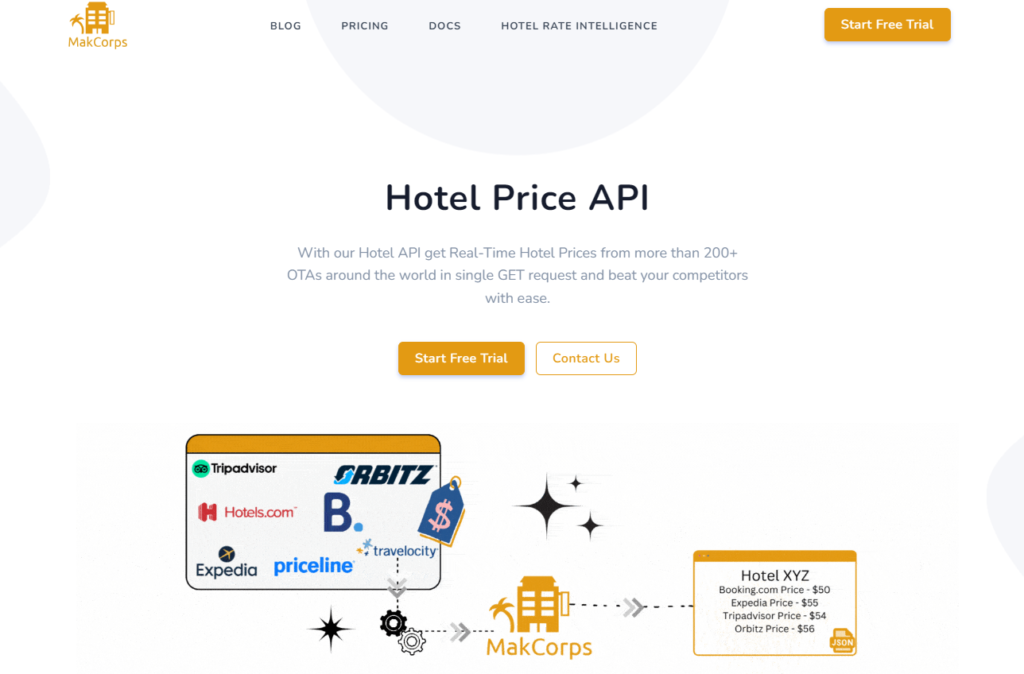
By leveraging price intelligence from such tools, hotels can set optimal pricing for their rooms. This data-driven approach allows hotels to craft compelling discounts and offers while still protecting their profit margins.
Enhanced Customer Satisfaction
The heartbeat of any thriving hotel business is understanding what guests genuinely need. Market intelligence gives you solid, data-driven insights into customer preferences, trends, and behaviors.
For instance, by utilizing market intelligence hotel businesses notice a surge in eco-consciousness that can lead hotels to adopt sustainable practices which include services with guest’s values for enhancing their stay.
To find out what customers need, key data sources include:
- Customer Feedback: Direct reviews and surveys provide real-time insights into guest experiences.
- Booking Trends: Data from platforms like Booking.com, Trivago, or any other hotel booking websites can help you understand booking behaviors and room preferences.
- Content and Review APIs: APIs from travel sites automate data collection which offers immediate insights into customer sentiments.
- Social Listening Tools: Helps you to know what people are talking about your hotel or brand on social media. Brand24, Mention, and Buzzsumo are a few popular and efficient tools you can use.
Utilizing this data allows hotels to tailor their services precisely to ensure guests receive more than expected and turn them into loyal customers.
Demand Forecasting
Market intelligence is indispensable for any hotel to forecast demand and remain competitive. Tracking the trends will allow these hotels to adjust to such intelligence through an analysis of customer preferences, competitor actions, economic indicators, and technological trends.
This will help in optimized pricing, effective resource management, tailored marketing efforts, and improved experiences for the guests.
Knowing future demand allows hotels to predict periods when they will be busy and therefore adjust prices accordingly, but it also helps in planning for enough staff and inventory levels.
This serves to enhance operational efficiency and guest satisfaction in positions that result in better hotels in a dynamic market. Eventually, effective use of market intelligence empowers hotels to make proactive decisions that will uplift profitability and market standing.
Risk Management
Market intelligence helps the hotel industry to dodge risks and make smarter decisions. Here is how. When market trends shift towards eco-friendly practices, hotels can use this information to adapt to the trends quickly. They can promote their green initiatives to stay relevant and appeal to the current customer’s demand and save themselves from losing profits by being outdated.
In addition to that, market intelligence also helps businesses to understand what competitors are up to.
It makes it possible for hotels to set competitive prices that ramp up their marketing to introduce services that set them apart and reduce the risk of losing guests to the hotel next door.
Revenue Maximization
Market intelligence empowers hotels to maximize revenue by offering deep insights into customer preferences, competitor strategies, and market trends.
By analyzing data from various sources like social media, customer feedback, and industry reports hotels can tailor their services to meet current demands.
For example, if market intelligence reveals a surge in eco-conscious travelers, a hotel can introduce sustainable practices that can extensively attract this segment to reap better profitability.
Apart from this, competitive analysis also helps hotels to adjust pricing dynamically so that they remain attractive to potential guests without sacrificing profit margins.
By understanding the amenities and services competitors offer, hotels can also identify gaps in their offerings and introduce enhancements that set them apart which can increase occupancy rates and average room prices.
Strategic Planning
Market intelligence plays a vital role when it comes to strategic planning toward success that endures over the long term.
It provides data-based insight that gives businesses a precise idea of competition and customer preferences. Once you know what exactly customers want, the pricing of the competitors, and what your competitors are doing. It gives you the confidence to create informed strategies that yield better results.
Undoubtedly, analyzing the prevailing market trends, guest behavior, and competitive dynamics will reveal the most opportunities for business.
Understanding competition allows positioning at a unique place that helps enhance appeal from the crowd in the marketplace.
This strategic alignment takes guest satisfaction a notch higher which results in optimized operational efficiencies for both which amounts to sustained revenue growth.
How to Use Market Intelligence for Your Hotel Business?
Implementation of market intelligence within a hotel is a process in which information is gathered, analyzed, and utilized to comprehend the market, competition, and customers better.
This has the effect of helping the hotel make informed decisions, tailor marketing strategies, and increase overall business performance.
Here’s how to get started:
1. Define Your Objectives

First thing first, Know what you want to achieve with market intelligence.
For example, do you want to increase occupancy rates, adjust pricing strategies, identify new market segments, or improve guest experience? Setting clear objectives will guide your data collection and analysis efforts.
2. Collect Data

To get a better and more comprehensive view of the market, you need to gather various types of data from different sources.
Here are a few:-
- Internal Data: Internal data is a goldmine for better understanding your customers and pondering on what you need to improve. To get this, you can review your booking data, customer feedback, and financial reports.
- Competitor Analysis: First you need to know who are your hotel’s actual competitors, and then keeping an eye on them. Competitiors analysis is not about copying them but ensuring that you don’t fall behind. It’s all about striving to be and offer them better. For a thorough competitive analysis, you need to monitor competitor pricing, services, promotions, and online presence.
- Industry Reports: To gain insights into the pioneers in the industry. You can access reports from industry associations, tourism boards, and market research firms. These reports are mostly based on the case studies, surveys, or experiments conducted which gives you innovative insights into the numbers and results.
- Online Reviews and Social Media: Reviews speak louder. To find out the customer’s wants, needs, expectations, and hate. You need to analyze customer reviews on platforms like TripAdvisor, Google, and social media sites to gauge guest satisfaction and perceptions.
- Economic Indicators: Charles Darwin once said that it is not the strongest or the most intelligent who will survive but those who can best manage change. So, if you want your business to thrive in this competitive era. Remember to keep an eye on economic trends that affect travel and hospitality, such as employment rates, travel regulations, and consumer spending habits.
3. Analyze the Data

1. SWOT Analysis: Start with the basics. A SWOT Analysis helps you map out your hotel’s Strengths, Weaknesses, Opportunities, and Threats. This isn’t just about knowing what you’re good at or what challenges you face but also helps to spot opportunities that others haven’t seen and defend against potential threats before they become real problems
2. Trend Analysis: This is all about spotting patterns. For instance, when you analyze the data, you need to notice the patterns.
It could be noticing a pattern of bookings during certain times of the year. Or maybe certain amenities are more popular among guests than others?
By tracking these trends, you can forecast future demands, tailor your services to meet guest preferences, and even adjust pricing or promotions to maximize revenue.
3. Benchmarking: Now, it’s time to look outward. How does your hotel stack up against others? Benchmarking lets you compare your performance with competitors and industry standards. This is not copying what others are doing, but learning from the market leaders and identifying areas where you can improve or innovate.
4. Sentiment Analysis: Lastly, find out what your guests are saying. Use software tools to analyze customer sentiment from online reviews and social media. This gives you a direct line into your customer’s thoughts and feelings about their experiences. It’s more than just counting positive and negative reviews but also about understanding the why behind them, which can guide you in making impactful changes.
4. Implement Insights

Once you have gathered all the valuable market intelligence. It’s time to turn your findings into actionable strategies:
Here is how you can do this:-
Pricing Strategies: Pricing is by far the biggest tool for earnings improvement. Therefore, your hotel room pricing shouldn’t just be a number that you pulled out of thin air. To get it right, you need to use data. And, based on that, you can decide your pricing. If the demand is high and your competitors are charging more, maybe you should too. Or, if you notice a gap where you can offer a more affordable option without compromising on quality, go for it! Adjusting your prices based on these insights can help you stay competitive and maximize profits.
Marketing Campaigns: Before you launch your marketing campaigns, ask these questions- Who are your customers? What do they like? Dislike?
And, use the demographics and preferences data to shape your marketing efforts.
For instance, suppose your market research reveals that a significant portion of your guests are families traveling for leisure, especially during school holidays.
This insight opens up several marketing opportunities. You can create family-friendly packages that include discounts on family rooms or suites, free meals for children, or tickets to nearby attractions.
Additionally, promotional ads for these packages could be timed to appear in the lead-up to school holiday periods and targeted on social media platforms frequented by parents, such as Facebook and parenting blogs.
It’s all about connecting with your audience where they are and with what they care about.
Service Improvements: No one likes to hear complaints, but feedback is gold in the business world.
If your customers are repeatedly mentioning something they aren’t happy about, or if there’s a rave about something they love, listen up!
Use this feedback to tweak your services. Maybe it’s speeding up service times, or adding little touches that enhance customer experience. Keep aligned with industry best practices, but also add your unique offerings.
New Opportunities: Lastly, don’t just keep doing what you’re doing. Look out for new opportunities. Your market analysis might reveal untapped markets or niche segments that are just waiting for what you can offer. Maybe it’s a service no one else is providing, or a new product line that meets a unique need. Dive into these new waters—it could be where your next big growth spurt comes from.
5. Monitor and Adjust

Continuously monitoring the market and your performance is crucial to scaling up for hotel business.
Here is how you can do this-
Regular Reporting: Start by setting up a system for regular reporting. This means tracking key metrics that really show how well your business is doing against the goals you’ve set. Whether it’s weekly, monthly, or quarterly, these reports should give you a clear picture of where you stand.
Feedback Loops: Next, pay attention to what your customers are telling you. Their feedback is gold! It’s direct insight into what’s working and what isn’t. Use this feedback to fine-tune your services and offerings. It’s about listening, really hearing your customer’s voice, and then acting on it to make your business better.
Adapt to Changes: Finally, stay flexible and ready to adapt. The market won’t stand still, and neither should you. Economic conditions change, new competitors emerge, and customer preferences shift. By staying agile and responsive to these changes, you can pivot your strategies in a way that keeps you ahead of the curve.
6. Invest in Technology

Investing in market intelligence tools is crucial for harnessing the power of data in shaping your business strategies. Take for example Hotel API providers, sources vast volumes of data to minute details of any one hotel, ranging from real-time reviews to trends in pricing and availability. The data integration enables businesses in the travel and hospitality sector to understand market dynamics so that they can customize their offers for optimal customer gratification.
Think about predicting which amenities will become more popular or what the effect of positive reviews will be on the pace of making bookings. With the right market intelligence tool, such information is at your fingertips, it helps you to act ahead of time and not just after the fact. So leverage the data and drive your strategy to stay ahead in a competitive market.
Conclusion
It’s crystal clear that thriving in the hotel industry isn’t just about offering great service and amenities—it’s about understanding your market inside and out.
That’s where hotel market intelligence comes into play. By defining what it is, recognizing its importance, and putting it into action, you’re setting yourself up for success in a highly competitive field.
It is your secret weapon that provides you the edge to anticipate trends, cater to your guest’s needs, and make informed decisions that drive your business forward.
So, Embrace the tools and strategies that help you gather insights, analyze data, and make smart choices.
Your business will thank you for it, and your guests will appreciate the exceptional experiences you deliver.
